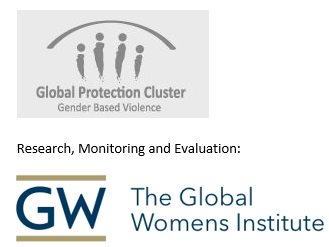A gap remains in translating the results of VAWG research in conflict and post-conflict settings into action. Often, completed research is only accessible in peer reviewed academic journals. Even in cases where practitioners and policymakers have access to such research, they are often unaware of how to interpret the results and do not know how to take action based on the information observed. One of the key challenges preventing uptake of the results of research is a lack of data literacy and the ability of non-academic stakeholders to understand and interpret data, particularly statistics. See GWI’s Research to Action Toolkit for more on understanding VAWG data and how to transform data into concrete programming and policy actions.
It is essential that the research and findings are validated within the local setting, as researchers hold an ethical responsibility to ensure that research reflects the context that is being presented to the world. In addition to obtaining validity, participatory dissemination activities facilitate feelings of ownership and improve uptake, especially at the local level. A few methods can be used to enable this:
- Focus groups with stakeholders and beneficiaries
- Community events where results are presented and explained
- Review sessions with local members
- Local or national policy events that highlight the efforts of local actors and organizations
